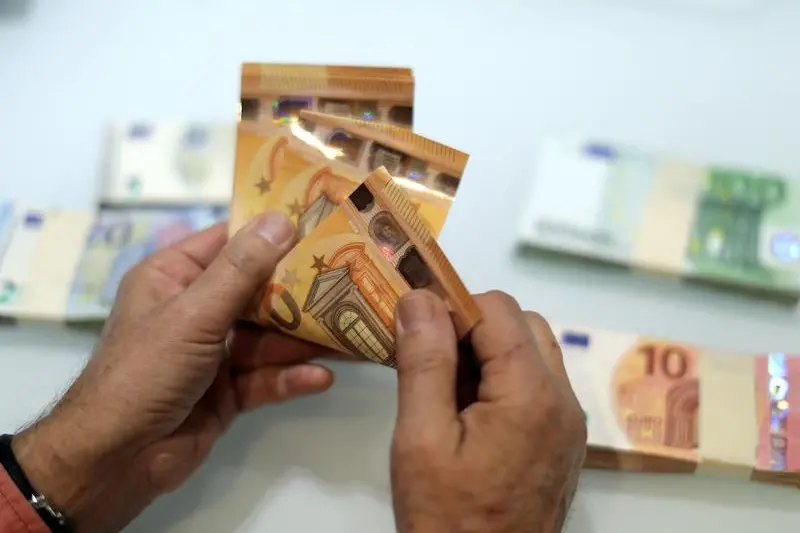PHOTO
LONDON- The euro held near a 10-day low on Monday after posting a weekly loss as investors remained cautious about the outlook for the euro zone economy in the near term.
Though latest data showed business morale in Germany, Europe's biggest economy, improved slightly in November, growth prospects for the euro zone remained uncertain as business growth in the region almost ground to a halt this month.
While the European Central Bank has resumed its bond-buying plan and lowered its deposit rate deeper into negative territory in September, those stimulus measures haven't borne fruit, with the euro weakening by 1.5% so far this month.
"The economic signals looks worrisome and the euro continues to trade on a weaker bias against the dollar," said Lee Hardman, a FX strategist at MUFG in London.
Hedge funds have increased their negative bets against the euro, with latest weekly data showing a small increase in overall net short positions.
Even some positive news flow on the Sino-U.S. trade front failed to lift enthusiasm about the euro.
"The economic data from China remains rather disappointing, and in many other emerging markets the economic engines are not running smoothly either," said Christoph Weil, a strategist at Commerzbank.
"The emerging interim agreement between the U.S. and China is nothing more than a ceasefire."
Against the greenback, the single currency edged down 0.1% to $1.1010, its lowest level since Nov. 14. It is on track for its biggest monthly drop since July 2019.
Broader markets remained focused on the likelihood of a trade agreement between the United States and China by year-end, which U.S. National Security Adviser Robert O'Brien said was still possible. The Global Times, a tabloid run by the ruling Chinese Communist Party's official People's Daily, also said a "phase one" deal was very close.
"Most of the inferences on the weekend (on the trade front) were positive and markets seem to have decided to run with it," said Colin Asher, senior economist at Mizuho.
U.S. adviser O'Brien said Washington would not turn a blind eye to events in Hong Kong, where there are fears of a Chinese crackdown against pro-democracy protests. Democrats scored a landslide majority in district council elections, raising pressure on the Chinese-ruled city's leaders to listen to their demands.
The offshore Chinese yuan nevertheless firmed 0.2% against the dollar, in line with other Asian currencies as well as the Australian and Kiwi dollars, while the safe-haven yen retreated to a one-week low versus the greenback at 108.89 yen.
The dollar index edged off the one-week high it hit on Friday against a basket of currencies.
Speculators raised net long bets on the dollar to a five-week high in the week to Nov. 19, data from the U.S. Commodity Futures Trading Commission showed. But they added to net short euro positions.
Markets will focus later in the day on speeches by the ECB's Chief Economist Philip Lane and U.S. Federal Reserve Chairman Jerome Powell.
Broadly, currency market volatility held near a record low on Monday as major currencies remained trapped in tight ranges.
(Reporting by Sujata Rao and Saikat Chatterjee; Editing by Pravin Char) ((sujata.rao@thomsonreuters.com; +44 207 542 6176;))





















